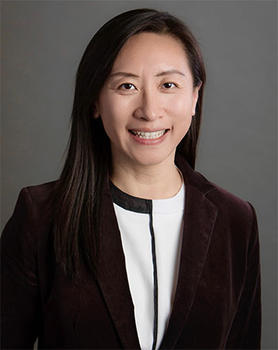Why are some firms more forthcoming than others about their social and environmental impact? It may have to do with the CEO’s personal incentives.
Investors are increasingly holding companies to high corporate social responsibility (CSR) standards. That’s the main reason more and more companies are choosing to disclose information about their social and environmental impact, either in standalone form or within their annual reports.

While the trend toward more widespread CSR disclosure has been firmly established by researchers, the motivations for disclosure have been less well understood. Newly published research by Long Chen, associate professor and area chair of accounting at George Mason University School of Business, in Contemporary Accounting Research finds that CEOs’ career aspirations are likely a key motivating factor. (Chen’s co-authors are Chih-Hsien Liao of National Taiwan University, Albert Tsang of Southern University of Science and Technology and Li Yu of Nankai University.)
In Chen’s analysis, CEOs use CSR disclosure to project an image of themselves as skilled and competent leaders–since such disclosures are regarded as signs of top-flight transparency and good corporate citizenship. And because a newcomer CEO’s need to define themselves to market participants is greater than that of a veteran about whom much is already known, both likelihood and quality of disclosure are inversely related to the length of a CEO’s tenure.
The researchers cross-referenced disclosures for U.S. firms drawn from the Refinitiv ESG database, with CEO data from those same firms. In all, their final sample encompassed 9,248 firm-year observations.
“Any CEO who just got in that role, their knowledge and skills will be less known to everybody else. How else will they signal, ‘Hey, I’m of good quality?’ They want to indicate long-term potential and performance so that investors can have strong confidence in future performance.”
They found that a one-standard-deviation decrease in CEO tenure resulted in up to 13.6% increased CSR disclosure across the sample. Importantly, the effect was even greater for firms with a high degree of analyst and press attention, and those with more institutional investors (which tend to prize social responsibility). These secondary effects bolster the theory of CSR disclosure as a signalling mechanism primarily used by early-tenure CEOs.
Explaining further, Chen says “Any CEO who just got in that role, their knowledge and skills will be less known to everybody else. How else will they signal, ‘Hey, I’m of good quality?’ They want to indicate long-term potential and performance so that investors can have strong confidence in future performance.”
Indeed, the researchers found that above-average CSR disclosure was positively associated with future profitability for all firms in the sample, especially for those led by early-tenure CEOs. This indicates that the signal was received by the market as intended.
Enhanced CSR disclosure was also correlated with significant personal benefits to the CEO–higher compensation, stronger reputation (as measured by invitations to speak at major business conferences) and longer tenures on the whole (i.e. more job security). Again, all CEOs of generously-disclosing firms enjoyed these payoffs to some degree, but early-tenure CEOs benefited more.
Chen says that in their push for CSR transparency, CEOs are “making rational trade-offs of costs vs. benefits. They do benefit from voluntary disclosure.”
Chen believes her research is relevant to ongoing discussions around the SEC’s proposed sustainability reporting requirements for listed companies in the U.S. The additional reporting burden is sure to come with its share of headaches. But Chen’s research suggests the rewards for firms may outweigh the difficulties.
“In research, we talk about baseline effects and incremental effects. Though we see that early-tenure CEOs benefit incrementally more from the signalling effect of CSR disclosure, some baseline benefit accrues to all CEOs and firms that voluntarily disclose,” she says.
The new SEC mandate promises to raise the bar for voluntary disclosure, meaning that CEOs must go even further than what’s strictly required if they want to send a potent signal to market participants.
The intended audience for such signalling–for example, investors–can use Chen’s findings to sharpen their interpretations of CSR disclosures. Knowing how long a firm’s CEO has held their position may help investors understand the intentions behind voluntary disclosure, and factor that into their decision-making.
- February 12, 2026
- February 11, 2026
- January 7, 2026
- December 15, 2025
- December 4, 2025
